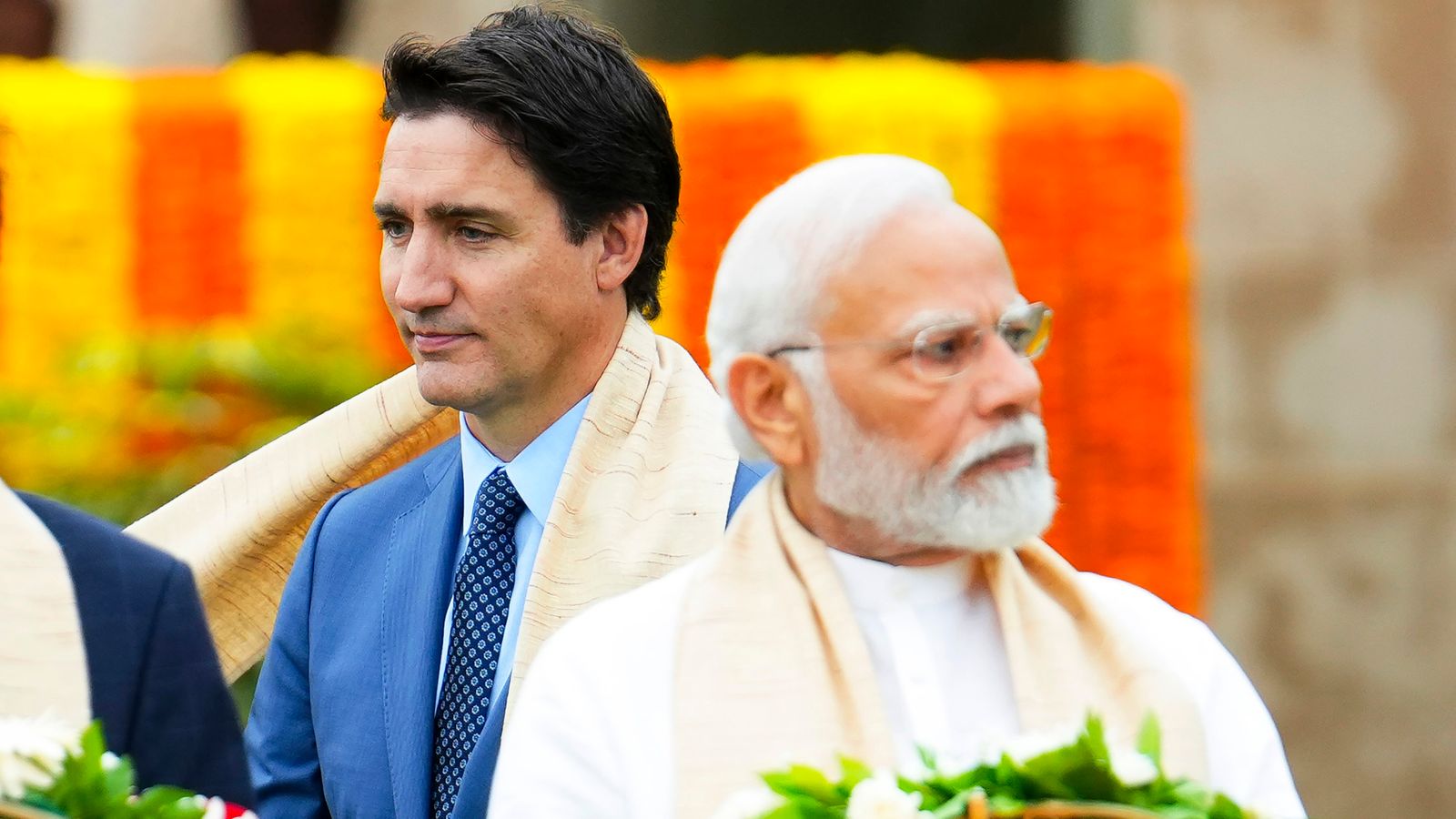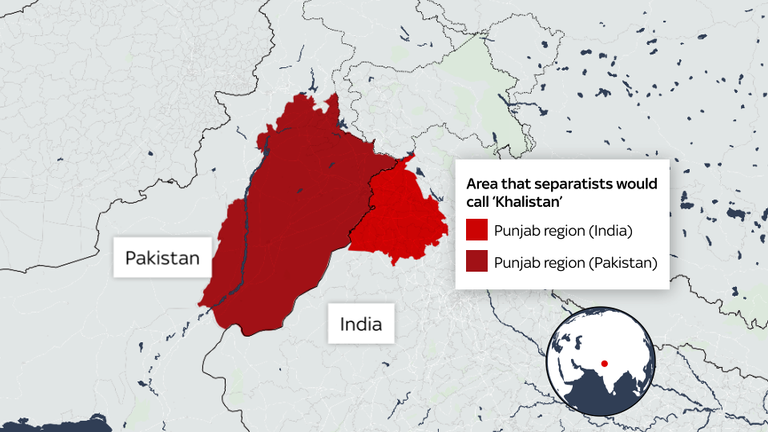Canada is “adjusting” its diplomatic staff presence in India as the South Asian nation suspended visas for Canadian citizens, widening a rift between the two countries.
Justin Trudeau, Canada’s prime minister, told parliament on Monday there are “credible allegations” India was involved in the killing of Sikh independence activist Hardeep Singh Nijjar in June.
India’s visa processing centre in Canada responded on Thursday by suspending visas for “operational reasons” – but gave no further details.
This notice was then taken down minutes later by BLS International, before reappearing again on Thursday morning.
India’s foreign ministry spokesperson did not respond to questions on the matter.
Canada’s high commission, meanwhile, said its diplomats in India have received threat on social media, adding it will temporarily adjust staff presence in the country, according to news agency ANI.
Canada also expelled an Indian diplomat, while India hit back by expelling a Canadian diplomat on Tuesday.
It called the allegations around Mr Nijjar’s killing absurd and claimed it is an attempt to shift attention from his presence in Canada.
Mr Nijjar had been wanted by India for years and was shot in June outside the temple he led.
On Wednesday, India updated its travel advisory for Canada, urging citizens in Canada to be cautious of “growing anti-India activities and politically condoned hate crimes”.
Venues in Canada where “threats have particularly targeted Indian diplomats and sections of the Indian community who oppose anti-India agenda” should also be avoided, India said.
Mr Nijjar had wanted to organise an unofficial referendum among the Sikh diaspora on independence from India and had denied the accusation that he was a terrorist.
Read more: What is the Khalistan movement – and how is it linked to India-Canada tensions?
Demands for an independent Sikh homeland, known as Khalistan, started as an insurgency in India’s Punjab state in the 1970s.
That movement was crushed in a crackdown by the Indian government, with thousands killed.
Momentum has since been lost, but supporters remain in Punjab – where Sikhs are a majority – and among the diaspora.

